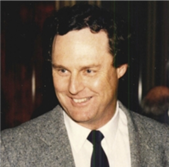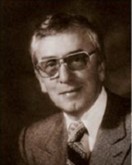Research
Related Links
- Schulich Medicine & Dentistry Research
- Western Research
- Lawson Health Research Institute
- Children's Health Research Institute
Department of Obstetrics & Gynaecology Paul Harding Research Day
 Dr. Paul Harding is considered the father of neonatal research in Canada and is remembered for his dedication and leadership as a clinical researcher.
Dr. Paul Harding is considered the father of neonatal research in Canada and is remembered for his dedication and leadership as a clinical researcher.
Dr. Harding is credited with building a strong culture of research within obstetrics, particularly at the Schulich School of Medicine & Dentistry. Dr. Harding was adept at blending research and clinical practice. Dr. Harding served as the Chair of the Department of Obstetrics & Gynaecology from 1982 to 1992; Hospital Chief at St. Joseph’s Health Care London from 1974 to 1982; and Associate Dean, Research at Schulich Medicine & Dentistry from 1993 to 1996.
Dr. Harding passed away on September 28, 2020. He will always be remembered as a trailblazer in obstetrics education and research in Canada and worldwide and as the reason we celebrate research today!
The Annual Paul Harding Research Day was established in recognition of Dr. Paul Harding’s legacy. At the Annual Paul Harding Research Day, the Department of Obstetrics and Gynaecology showcases the research endeavors of students, residents and faculty. To recognize and honour Dr. Earl Plunkett the Department also established The Earl R. Plunkett Lecture.

Dr. Earl Plunkett was an internationally respected physician, reproductive endocrinologist, and professor, who remained devoted to his teaching and research until he died in 1997 at the age of 74. Throughout his career, Dr. Plunkett held key leadership positions, including Chair of the Department of Obstetrics and Gynaecology at Western University, Chief of Gynecology at University Hospital, Chief of Gynecology and Research at Toronto General Hospital, and Chairman of the Canadian Committee on Fertility Research.
Dr. Plunkett played a role in founding Canada’s first Reproductive Endocrinology and Infertility (REI) Unit at University Hospital in London Ontario in 1982. This REI Unit became a model for other such clinics around the world. Dr. Plunkett also played a pivotal role in developing the science behind the birth control pill, and the use of norgestrel in hormone replacement therapy.
In 1997, his son, Steve Plunkett established the Plunkett Foundation with a $5-million endowment to honour his memory. The Plunkett Foundation supported more than 50 organizations, many of whom received more than one grant. Dr. Plunkett will be remembered by his patients, colleagues, and students for his exceptional clinical care, his passion for teaching, and his research contributions.










